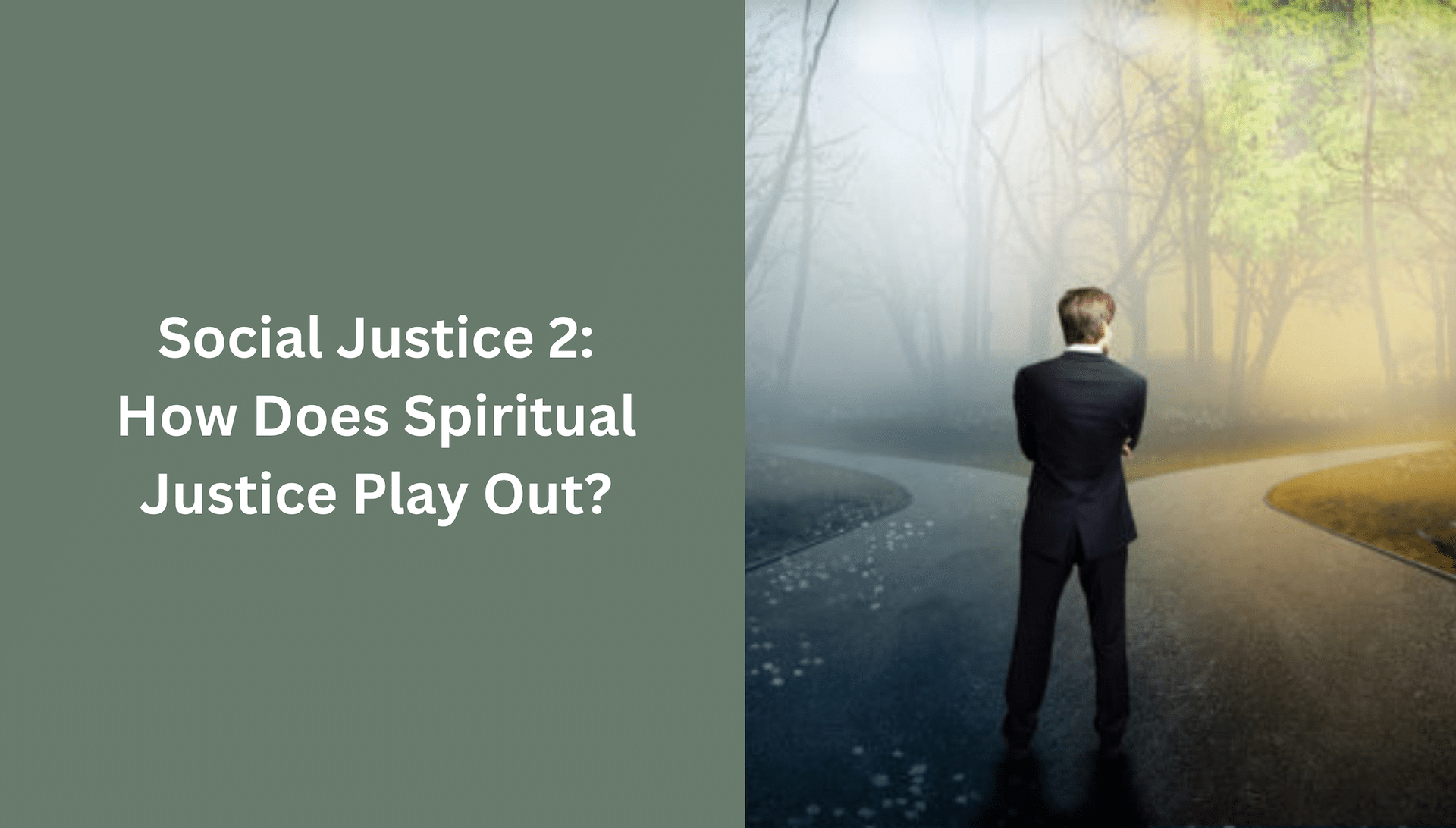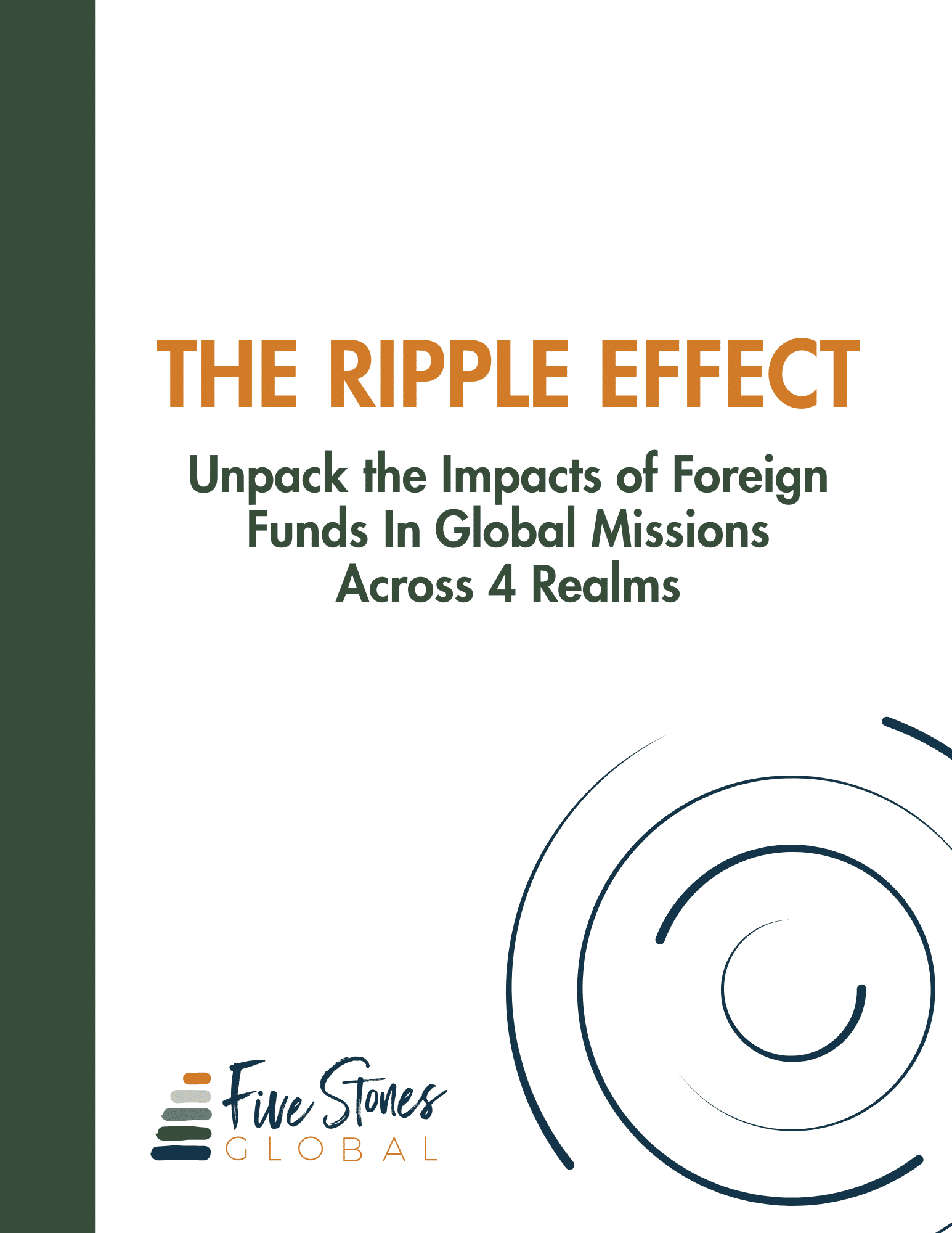By Jean Johnson
In my last post, we visited God’s heart for social justice by listening in on a conversation between a child and a parent. Additionally, we visited Isaiah 1:17, which is a clear invitation to correct oppression, bring justice to the fatherless, and plead the cause of widows.
In certain periods of the Christian missions movement, missionaries focused primarily on sharing the message of the gospel. But somewhere along the line (largely in response to Scriptures like Isaiah 1:17), Christians serving in local and global missions concluded that our work was lopsided in that Christians responded to spiritual concerns while ignoring social and physical concerns. Ever since, there has been an ever-growing movement toward social justice causes.
But what if we ever so slowly, without even recognizing it, are swinging the pendulum too far in the other direction? What if we liberate people from socioeconomic problems but say little and do little in regard to spiritual justice? Is there such a thing as spiritual justice? The apostle Paul seemed to think so when he called Elymas an enemy of justice.
Elymas, whose story is found in Acts 13, acted as counselor to Sergius Paulus, a deeply intellectual governor of Cyprus. Sergius Paulus summoned Paul and Barnabas to visit him so they could tell him more about Jesus. When they did, they also encountered Elymas: an occult spiritualist and Jewish false prophet whose name was Bar-Jesus. “Elymas” was a nickname, meaning magician. His role was to provide spiritual counsel to the governor through his magical powers.
As Paul and Barnabas shared their message, Elymas did everything he could to interrupt and discredit them so Sergius would not come to faith.
This was when spiritual justice kicked in for Paul:
Paul: You’re a son of the devil. You’re an enemy of justice, you’re full of lies, and you steal opportunities from others. Why do you insist on confusing and twisting the clear, straight paths of the Lord? Hear this, Elymas: the Lord’s hand is against you, and you will be as blind as a bat for a period of time, beginning right now! (Acts 13:10–11, The Voice)
And sure enough, Elymas was instantly blind as a bat. Not only that, but Elymas’s attempt to keep Sergius away from belief and liberation in Jesus backfired immensely, as it was Paul’s miraculous effort to combat spiritual injustice that caused Sergius to be amazed and to believe.
In a way, you could call Paul a spiritual activist—someone who gives their whole self on behalf of others so they may know a clear path to God.
Philip Yancey wrote, “Faith, the forgiveness of sins, the power of the Evil One—these were the concerns that drove Jesus to the Father in prayer each day. Such an emphasis confused the crowds, who primarily sought solutions to their problems in the physical world: poverty, illness, political oppression.”1
As Christians, we can provide kids with temporary opportunities for a better education or fleeting straight paths to economic improvement while at the same time neglecting the creation of authentic and clear opportunities to know and follow Jesus, who is the eternal Liberator.
To receive an improved socioeconomic life without adequately hearing the justice narrative of God and without experiencing reconciliation to the Just God through the just sacrifice of Jesus is like receiving a beautiful and expensive wedding ring without a lifelong mate.
In my years on the field, I saw way too many Cambodians respond to and receive help from social action efforts offered by missionaries and visiting Christians while struggling to grasp and follow the clear, straight paths of the Lord. If indeed we are sent out by God to the nations, we need to put as much effort into laying out the clear, straight path to the Lord as we do implementing social action.
I am not talking about blasting people with the gospel wrapped nicely in our cultural package, but about putting in the work it takes to make the path as clear as possible. I am talking about learning the language, culture, and people. Paul had tremendous cultural discernment as to how to operate in a power-fear belief system. He probably didn’t arrive at this discernment overnight. Rather, it required much prayer, cultural on-the-job training, and the building of authentic relationships.
Paul gives us an apt description of spiritual activism:
Though I am free and belong to no one, I have made myself a slave to everyone, to win as many as possible. To the Jews I became like a Jew, to win the Jews. To those under the law I became like one under the law (though I myself am not under the law), so as to win those under the law. To those not having the law I became like one not having the law (though I am not free from God’s law but am under Christ’s law), so as to win those not having the law. To the weak I became weak, to win the weak. I have become all things to all people so that by all possible means I might save some. I do all this for the sake of the gospel, that I may share in its blessings. (Romans 19:23)
There is a lot of cross-cultural work involved in being a spiritual activist. Becoming like a specific people is no easy assignment. Giving up certain rights, comforts, and material accruements takes lots of prayer and resolve.
If we aspire to be cross-cultural spiritual activists, we are required to get out of our American/European/etc. skin (avoiding ethnocentrism), be with people on their terms, and lay out a clear path to God.
In some ways you could say that Elymas was a human rights violator—preventing Sergius Paulus from hearing the gospel which he had sought out in the first place. Paul was a spiritual activist in that he stood up for the truth, and Sergius was the one liberated.
Continue bringing solutions to the physical world, but be cautious the pendulum doesn’t swing too far in the other direction—ignoring the persistent human concerns that drove Jesus to the Father in prayer each day: faith, the forgiveness of sins, and the power of the Evil One.
My next blog will speak to this question: Is our integral mission (integration of gospel proclamation and deed), as integral as we want to believe?
1 Philip Yancey, Disappointment With God, Zondervan, 1992.


